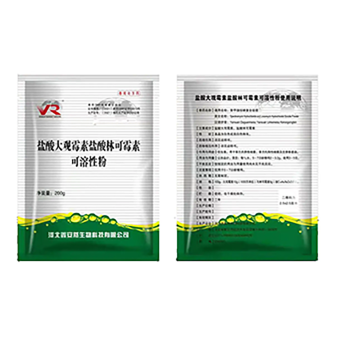- Afrikaans
- Albanian
- Amharic
- Arabic
- Armenian
- Azerbaijani
- Basque
- Belarusian
- Bengali
- Bosnian
- Bulgarian
- Catalan
- Cebuano
- Corsican
- Croatian
- Czech
- Danish
- Dutch
- English
- Esperanto
- Estonian
- Finnish
- French
- Frisian
- Galician
- Georgian
- German
- Greek
- Gujarati
- Haitian Creole
- hausa
- hawaiian
- Hebrew
- Hindi
- Miao
- Hungarian
- Icelandic
- igbo
- Indonesian
- irish
- Italian
- Japanese
- Javanese
- Kannada
- kazakh
- Khmer
- Rwandese
- Korean
- Kurdish
- Kyrgyz
- Lao
- Latin
- Latvian
- Lithuanian
- Luxembourgish
- Macedonian
- Malgashi
- Malay
- Malayalam
- Maltese
- Maori
- Marathi
- Mongolian
- Myanmar
- Nepali
- Norwegian
- Norwegian
- Occitan
- Pashto
- Persian
- Polish
- Portuguese
- Punjabi
- Romanian
- Russian
- Samoan
- Scottish Gaelic
- Serbian
- Sesotho
- Shona
- Sindhi
- Sinhala
- Slovak
- Slovenian
- Somali
- Spanish
- Sundanese
- Swahili
- Swedish
- Tagalog
- Tajik
- Tamil
- Tatar
- Telugu
- Thai
- Turkish
- Turkmen
- Ukrainian
- Urdu
- Uighur
- Uzbek
- Vietnamese
- Welsh
- Bantu
- Yiddish
- Yoruba
- Zulu
Nov . 09, 2024 07:54 Back to list
Exploring Gentamicin Sulfate and Its Applications in Medical Treatments and Research
Understanding Licogenta An Insight into Gentamicin Sulfate
Gentamicin sulfate, a member of the aminoglycoside class of antibiotics, plays a significant role in the treatment of bacterial infections. Licogenta refers to a specific formulation or brand name of gentamicin sulfate, often used in various medical applications. Its effectiveness against a broad range of Gram-negative and some Gram-positive bacteria has made it a cornerstone in modern antibiotics.
Mechanism of Action
Gentamicin sulfate operates by binding to the 30S subunit of bacterial ribosomes, inhibiting protein synthesis. This mechanistic approach disrupts the ability of bacteria to grow and reproduce, ultimately leading to cell death. The high efficacy of gentamicin against numerous pathogens stems from its ability to penetrate bacterial cell membranes effectively, making it a powerful weapon in the fight against severe infections.
Uses and Applications
Licogenta gentamicin sulfate is commonly utilized in treating serious infections caused by susceptible bacteria, particularly in cases involving sepsis, respiratory infections, and urinary tract infections. Its use is prevalent in hospital settings where patients may be at risk of serious, life-threatening infections. Additionally, it is often prescribed post-surgery to prevent infections, particularly in patients with weakened immune systems.
Moreover, gentamicin sulfate is frequently applied in the topical treatment of skin infections, particularly in formulations designed for ocular or dermatological use. This versatility in application showcases its importance in both systemic and local treatment protocols.
licogenta gentamicin sulfate

Dosage and Administration
The administration of Licogenta gentamicin sulfate depends on the severity and type of infection being treated. It can be administered intravenously, intramuscularly, or topically, depending on the clinical scenario. Careful dosage calculations are essential, as excessive use can lead to toxicity, particularly nephrotoxicity (kidney damage) and ototoxicity (hearing loss). Therefore, health care providers must closely monitor renal function during treatment and adjust dosages accordingly, especially in patients with pre-existing kidney conditions.
Side Effects and Considerations
While gentamicin sulfate is highly effective, it is not without its potential side effects. The most significant concerns include nephrotoxicity and ototoxicity, which can arise from prolonged use or high dosages. Patients may experience dizziness, tinnitus, or changes in hearing, prompting immediate medical evaluation. Kidney function tests are often recommended to ensure patients maintain normal renal function during the course of treatment.
Furthermore, the rise of antibiotic resistance is a pertinent concern associated with the use of gentamicin sulfate. Hence, it is crucial for clinicians to use this antibiotic judiciously and only when necessary to preserve its efficacy for future use.
Conclusion
Licogenta gentamicin sulfate remains a vital tool in combating bacterial infections in a clinical setting. Its broad-spectrum activity, coupled with an understanding of its potential side effects, ensures that healthcare providers can utilize this antibiotic effectively. Awareness of the mechanisms of action, application strategies, and monitoring criteria is fundamental in optimizing patient outcomes. Ultimately, gentamicin sulfate represents a significant advancement in antibiotic therapy, but its use must be carefully managed to mitigate the risks of toxicity and resistance.
-
Guide to Oxytetracycline Injection
NewsMar.27,2025
-
Guide to Colistin Sulphate
NewsMar.27,2025
-
Gentamicin Sulfate: Uses, Price, And Key Information
NewsMar.27,2025
-
Enrofloxacin Injection: Uses, Price, And Supplier Information
NewsMar.27,2025
-
Dexamethasone Sodium Phosphate Injection: Uses, Price, And Key Information
NewsMar.27,2025
-
Albendazole Tablet: Uses, Dosage, Cost, And Key Information
NewsMar.27,2025













